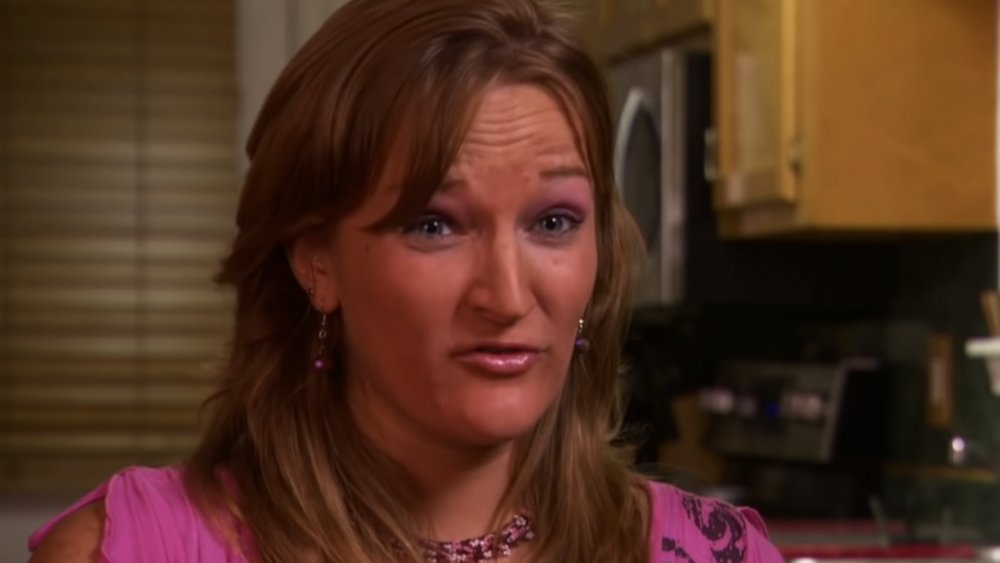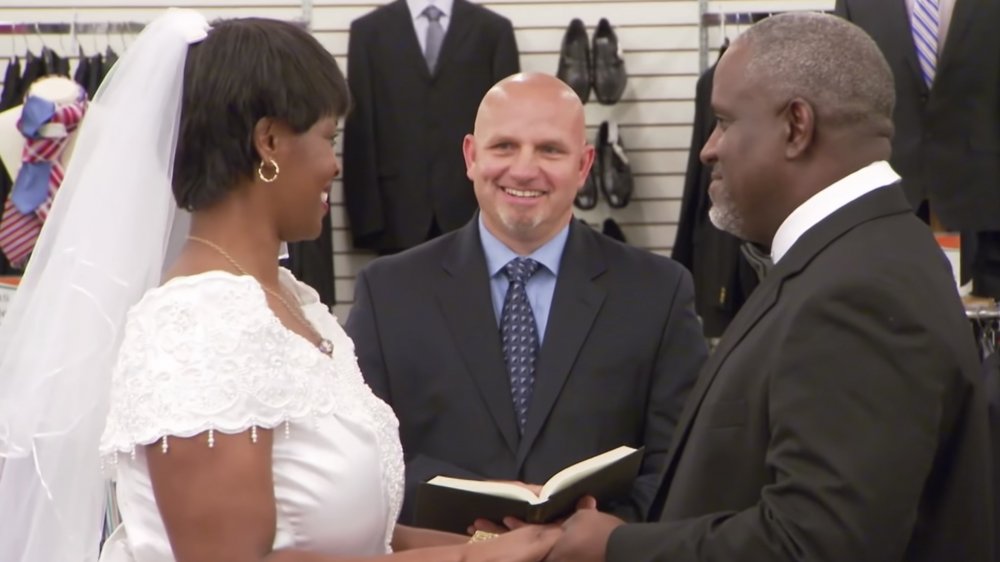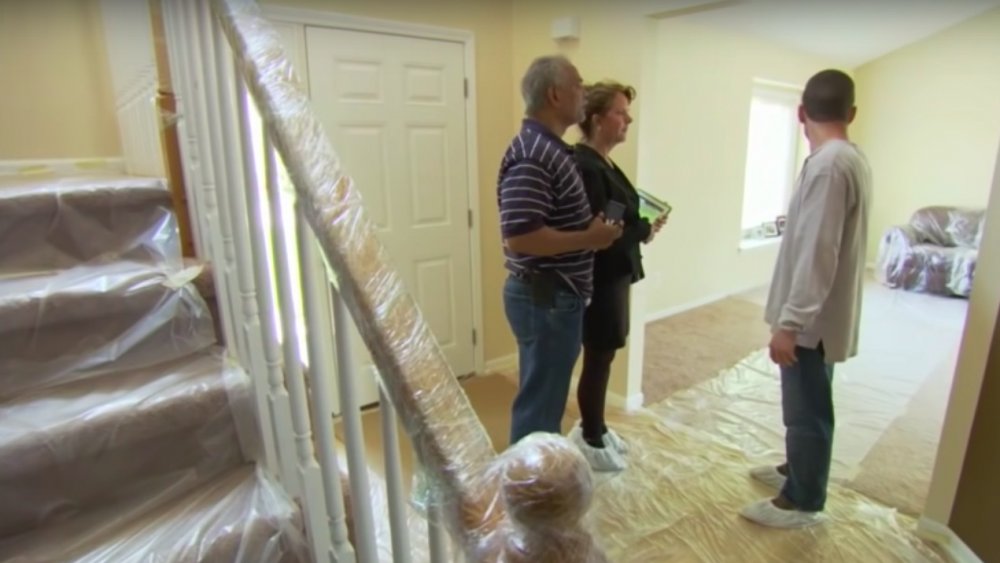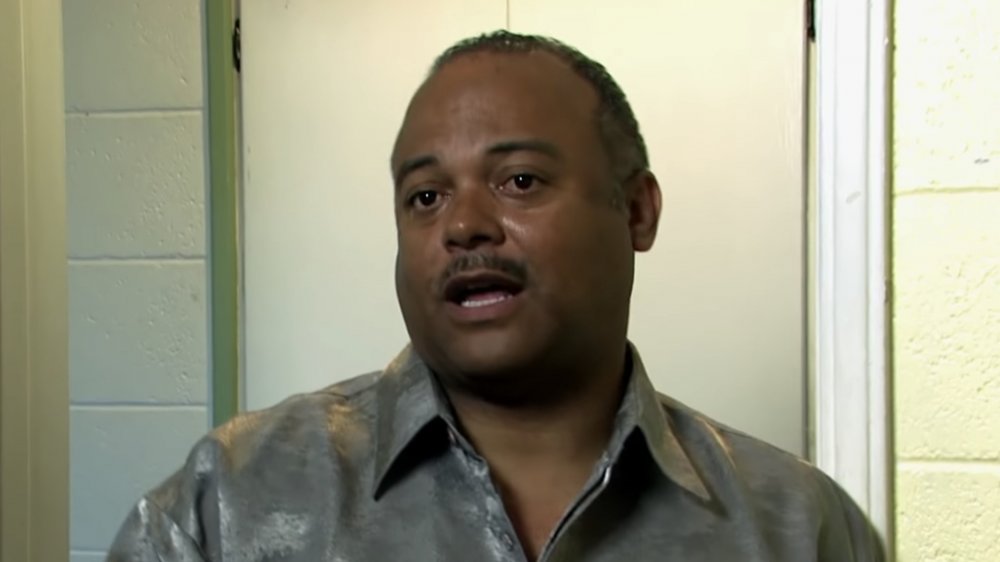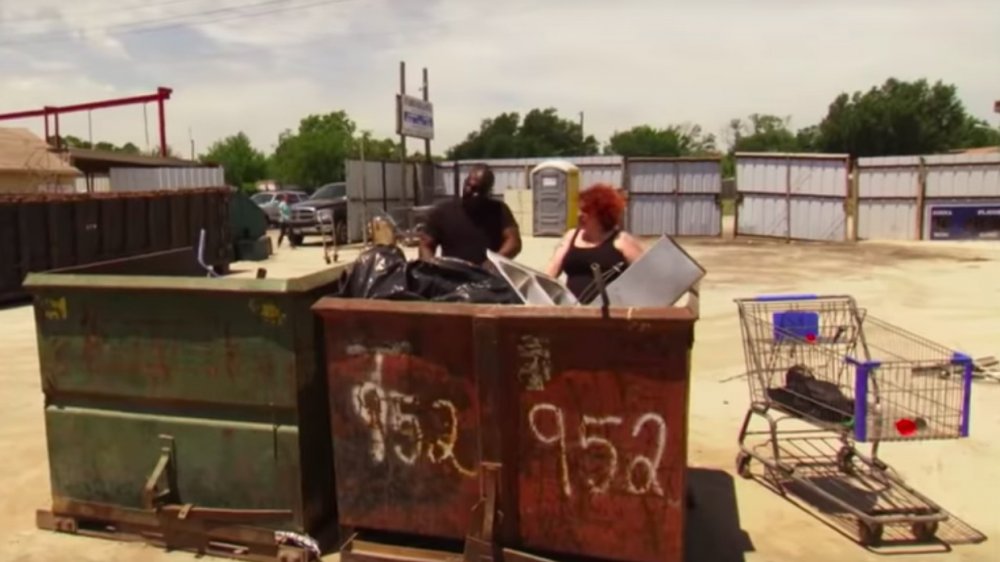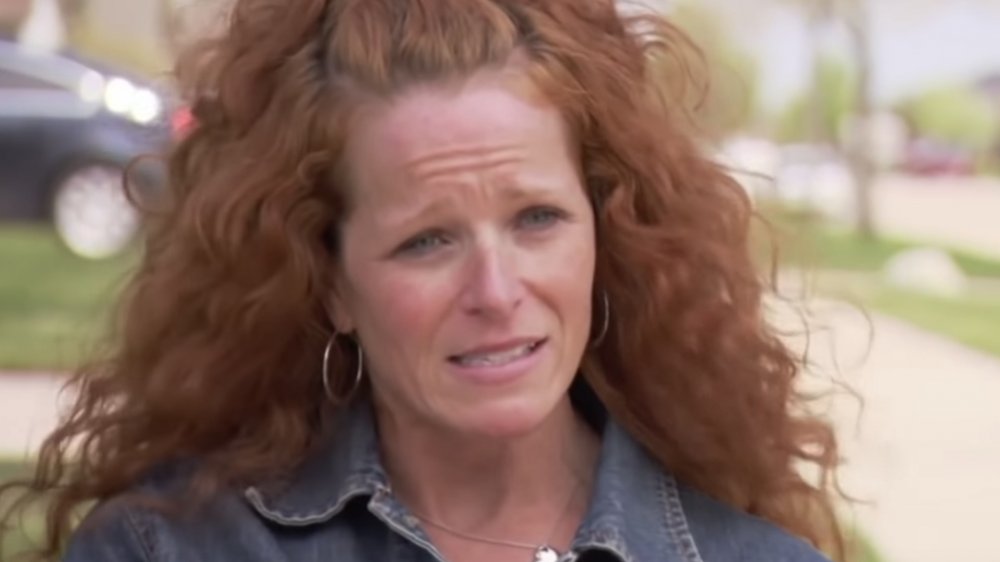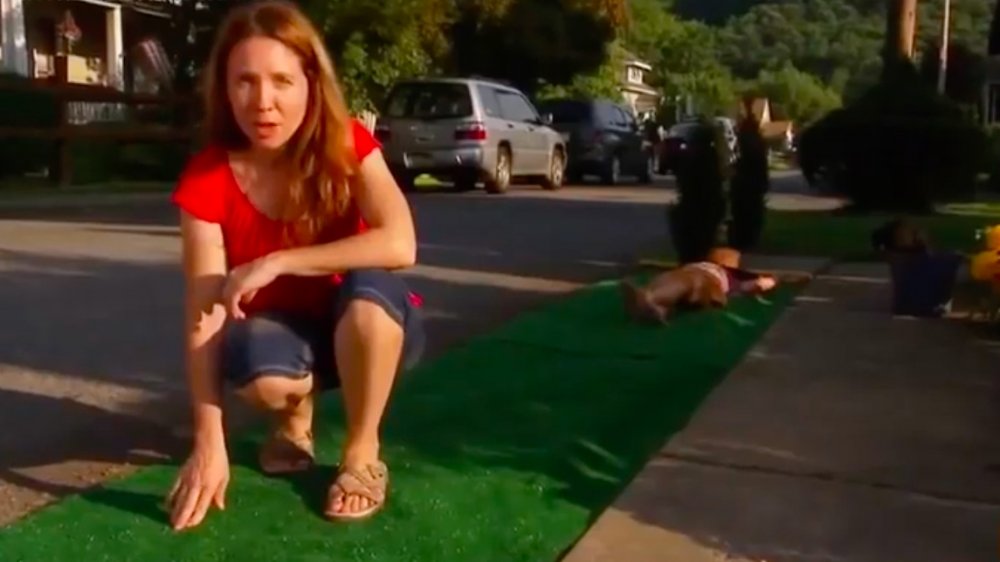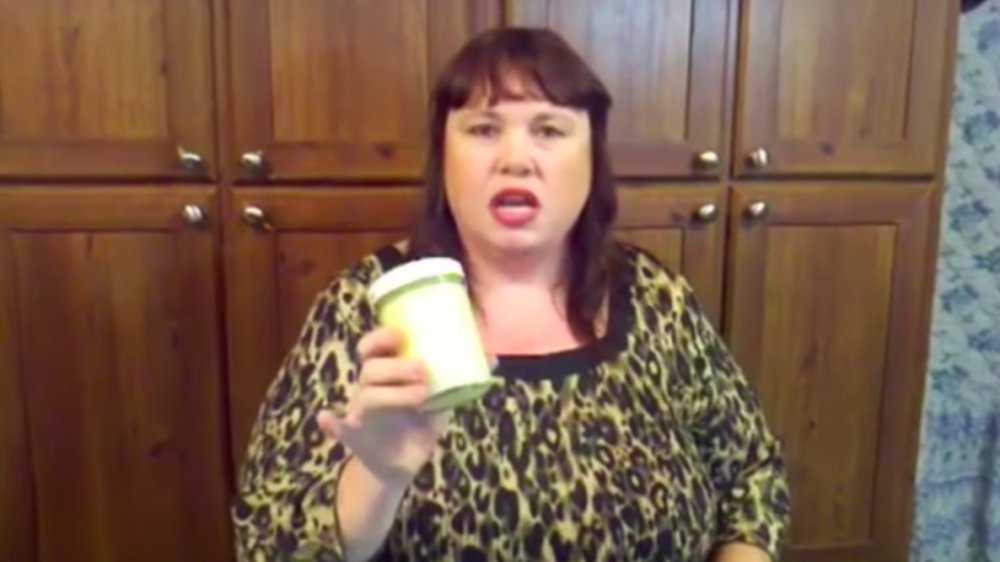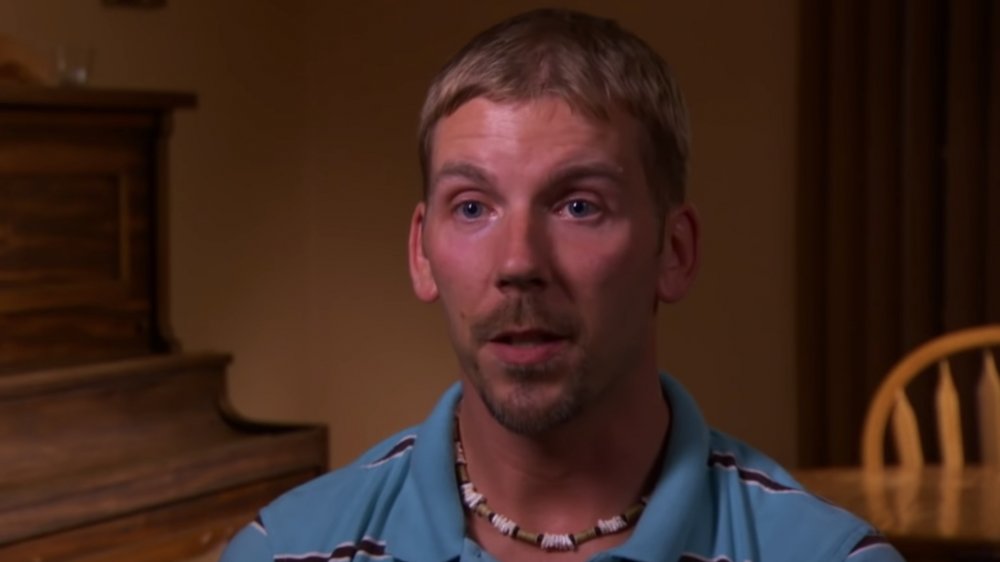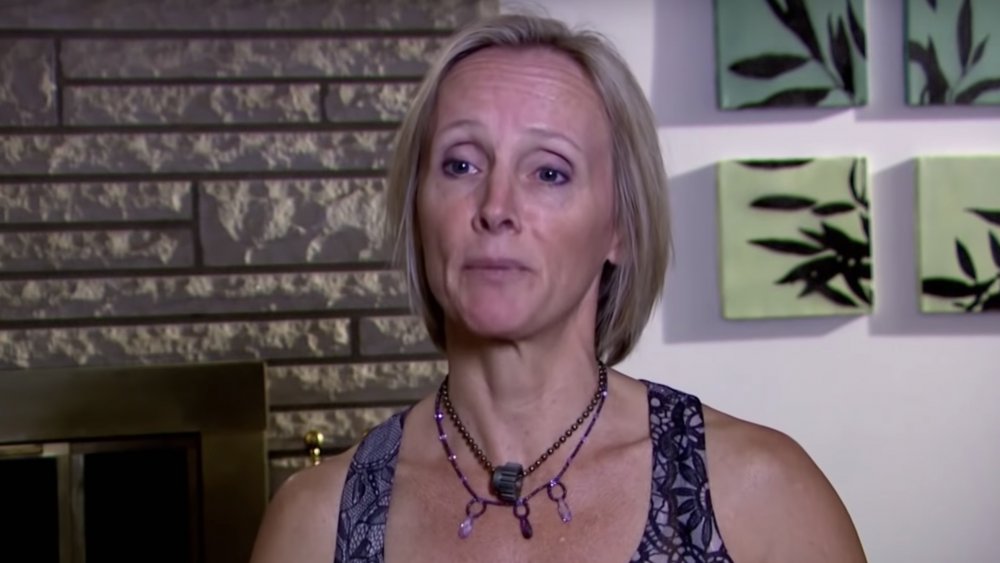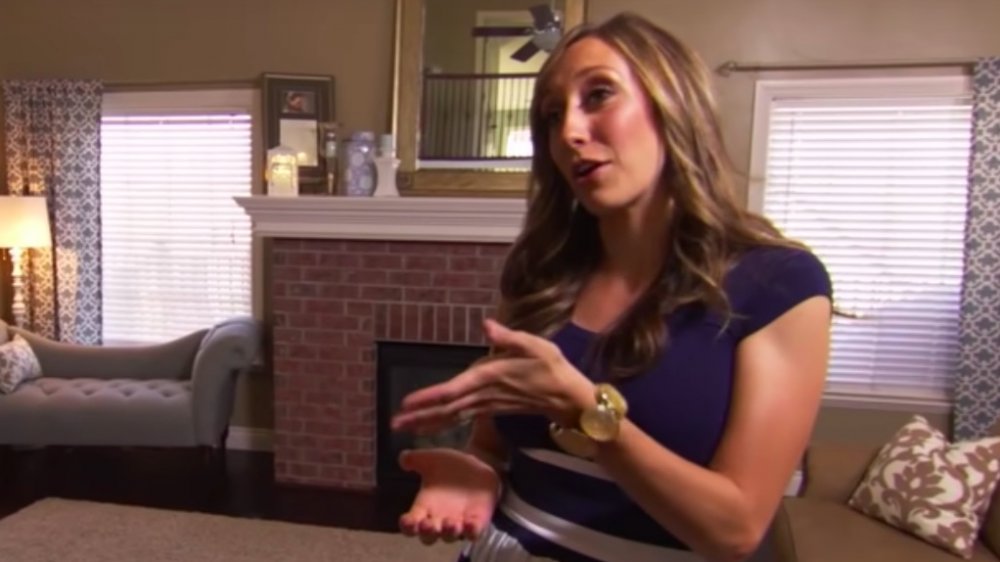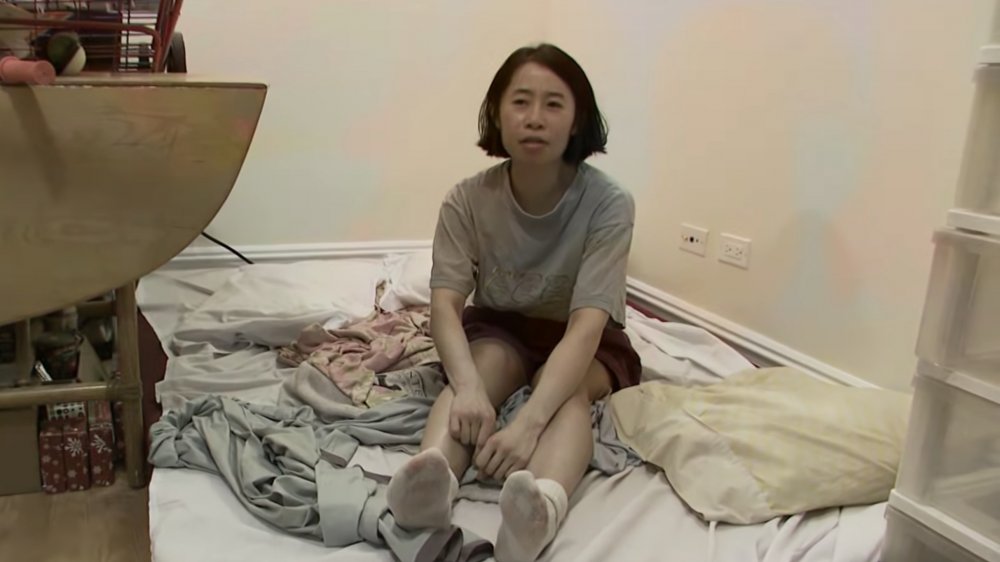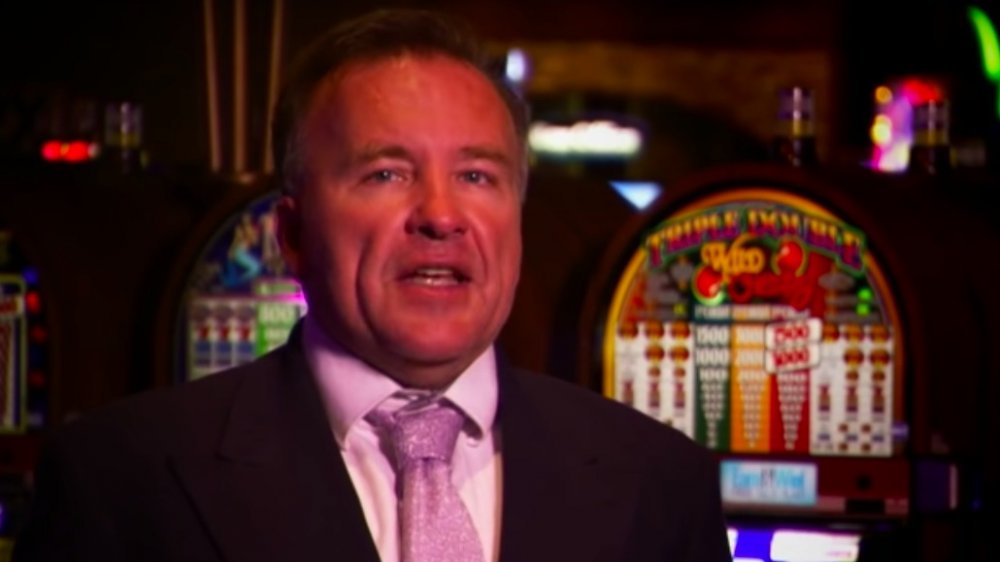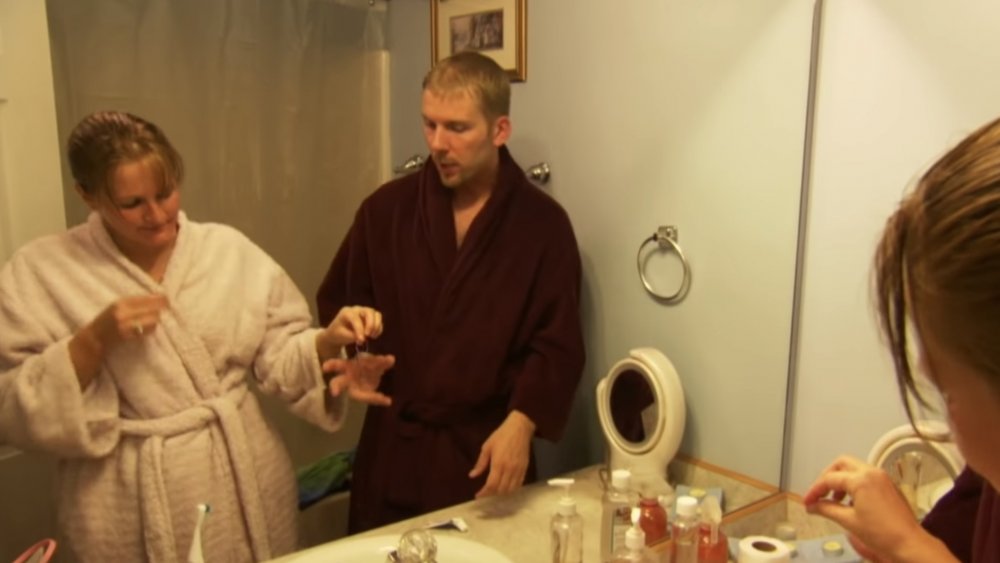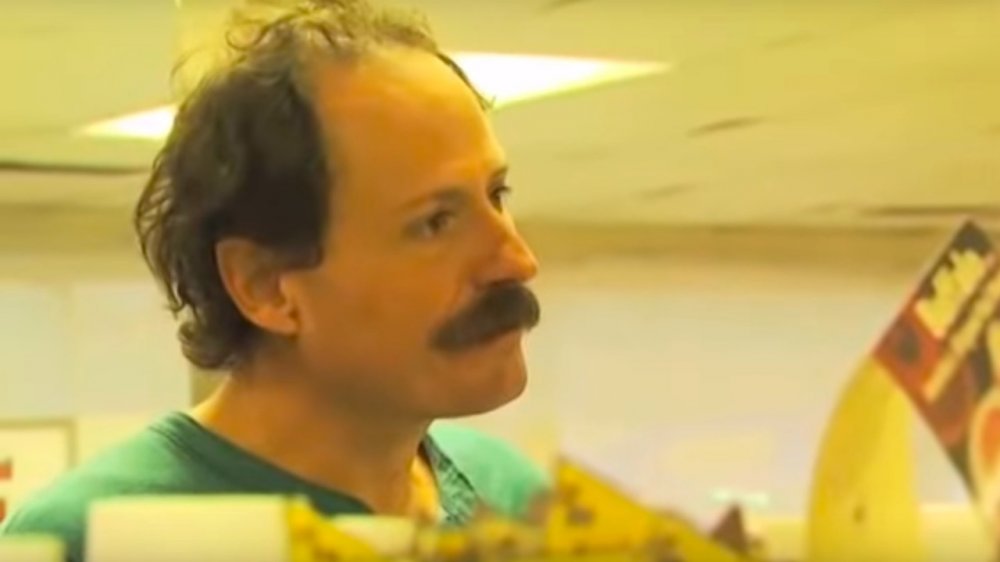The Untold Truth Of Extreme Cheapskates
When TLC debuted Extreme Cheapskates in 2011, viewers met some seriously eccentric people who took frugality to whole new levels.
The reality show profiled people who weren't just stingy, but those who went to ridiculous lengths to save a penny or two. According to the network's announcement, the show "explores the frugal world of a group of individuals who are constantly searching for unique ways to cut costs by any means necessary." TLC — home of shows like Welcome to Plathville, 90 Day Fiancé, and My 600-lb Life — noted, "These penny-pinchers don't just reuse teabags and turn the lights off when they leave a room, they take it much further." In fact, series brought viewers a glimpse of a woman whose idea of fine dining was foraging through the dumpsters outside of high-end restaurants and another who was so obsessed with reducing her water bill that she only flushed her toilet once a week.
Placing the emphasis on the word "extreme," even the cheapest of cheapskates couldn't believe what they were watching. Surprisingly, there's still plenty about the TLC hit that viewers didn't see on the small screen. Here's the untold truth of TLC's Extreme Cheapskates.
Extreme Cheapskates began as a one-off special
After experiencing success in early 2011 with its reality show Extreme Couponing, TLC decided to shine the spotlight on even thriftier people later that same year, testing the waters with a special titled Extreme Cheapskates. The special focused on four people who took their passion for penny-pinching to bizarre lengths, including a guy who "unabashedly takes home other people's leftovers at his local restaurant, and goes dumpster diving to find an anniversary gift for his wife." Also profiled was a Maryland couple who took a "fiscal fast" five times a year, refusing to spend any money during a one-week period, and a Michigan man whose talent for bartering led him to save $20,000 on his wedding.
The special proved to be a hit with viewers, attracting an audience of 1.6 million, leading TLC to order an eight-episode first season. The show would ultimately run for three seasons thanks to such participants as a guy who washed his clothing in the dishwasher, a mother who served her family roadkill, and a flight attendant who cut costs on her wedding by holding the nuptials in an airport's unclaimed baggage center.
What Extreme Cheapskates was looking for in its participants
In the network's announcement, TLC sought "individuals who look for creative ways to cut costs by any means necessary" — leading to the discovery of the likes of a guy who shrink-wrapped his entire house to keep its resale value intact.
Time columnist Brad Tuttle jokingly wrote about the casting call, "Do you go dumpster-diving for your wife's anniversary gift? Do you dine on cow's hearts and goat's heads, so long as the price is right? When you hear the words 'reusable toilet paper,' do you think 'Brilliant!' rather than 'Yuck!?'" He continued, saying that if any readers said "yes" to those questions, they may be the perfect fit for TLC's Extreme Cheapskates.
Tuttle also shared a Craigslist ad seeking applicants. "Just prior to new years [sic], we aired a special that featured a man who washed and reused his paper towels, and another who cooked and ate goat's head all in the interest of saving a few dollars," read the ad. "Now, we're excited to say that we'll be making the topic an eight-episode series, and we're looking for folks who have unique and smart ways to cut corners and pinch pennies."
Were people who appeared on Extreme Cheapskates compensated?
In 2014, The Tennessean columnist Mary Hance, who shares money-saving advice in her "Ms. Cheap" column, revealed that she'd been contacted about appearing on Extreme Cheapskates after producers came across her Facebook page. According to Hance, she wound up communicating with Brooklyn Bagwell, casting director at Sharp Entertainment, the company that produced the show. According to Hance, Bagwell told her that the people selected to appear on Extreme Cheapskates don't have to do any traveling in order to appear on the series, saving a big expense that would probably be a deal-breaker for any cheapskate worth his or her salt. "We fly to them and film the episode in their home," Bagwell reportedly explained.
Bagwell was said to confirm that the folks chosen to appear on the show are actually paid for their participation. However, she reportedly declined to share exactly how much the paycheck was, indicating it probably wasn't a lot. "We discuss money privately," Bagwell was said to tell Hance, adding that compensation reportedly involves "a little bit of money."
Extreme Cheapskates wasn't looking for coupon-clippers
When communicating to The Tennessean's "Ms. Cheap" Mary Hance, Extreme Cheapskates casting director Brooklyn Bagwell was very specific about the kind of people the show's casting team was looking for. As she explained, any old cheapskate wouldn't do, as the show's emphasis was on the "extreme."
"I am seeking extremely frugal people with decent paying jobs that still find cheaper alternative ways to live their lives," reportedly wrote Bagwell in her response to Hance. "We're not looking for 'couponers.' We're looking for cheap people that are constantly finding creative ways around their home or in the office to stay cheap. These people must have big personalities, be very outgoing, entertaining and want to be on TV!"
Sharp Entertainment's website was even more specific about the kind of personalities sought for Extreme Cheapskates, people whose "scrimping and saving extends to every element in their lives, and often changes the way they do business." The company shared such examples as "the Pilates instructor who uses tire inner tubes instead of expensive resistance bands" and "the culinary class instructor who scavenges street weeds and dumpster dives for ingredients."
Reviews warned viewers they might be grossed out by Extreme Cheapskates
In reviewing TLC's Extreme Cheapskates, TV critics could all agree on one thing: The show definitely lived up to its title. As for why anyone would actually want to watch it, that was another matter entirely. In a review, Entertainment Weekly shared a sneak-peek video along with a warning directed at viewers, joking that the promo was "NSFWPWGGOE (Not Safe For Working People Who Get Grossed Out Easily)."
The Hollywood Reporter declared that Extreme Cheapskates would likely appeal to viewers who enjoyed Hoarders, which featured a number of disturbing collections, and was guaranteed to "bring all of the uncomfortable cringing one could hope for," noting, "Queasy viewers, on the other hand, might want to keep it at an extreme arm's length."
Extreme Cheapskates, joked The Hollywood Reporter, was TLC's "latest offering in their dogged commitment as purveyors of Victorian sideshow." The publication pointed out that the cheapskates profiled on the show are "people who eat roadkill, never replace clothes and pay for almost nothing — in other words, people who make Scrooge seem like a reckless spender."
How one woman attracted the attention of Extreme Cheapskates
If there's such a thing as a professional cheapskate, Jamie Jay would be that. After appearing on an episode of Extreme Cheapskates, she described the experience in an interview with local newspaper The Daily Item. Explaining that she has "a much higher standard of living than [her] less-than-average income would normally allow," Jay said that, when she found out about the casting call for the show, she "knew it was meant to be."
As Jay pointed out, she had a bit of an edge when it came to being cast, given that she was the author of the penny-pinching book Living Big on a Small Income: The Classy Cheapskate Way.
However, what really sealed the deal was some of her more outlandish money-saving efforts. As TLC producer Mike Kane told the newspaper, this included such tricks as planting fake plastic flowers on her property to save on gardening costs — along with repurposing cat litter by baking it in a kiln and then using the material to make coasters and candle-holders. "I never, ever worry about money," she proudly declared.
Extreme Cheapskates took a long time to film
Oklahoma resident Melody Rose Gravitt appeared on Extreme Cheapskates in 2013, and she gave local newspaper Enid News & Eagle some behind-the-scenes info that she gleaned from her experience on the show. According to Gravitt, she was surprised by how long it took to film what ended up being a relatively brief segment in her episode.
"They came here and we didn't know what to expect," she said, revealing that it took three days of filming, shooting for 15 hours on the first day and 13 hours on the second. Interestingly Gravitt's appearance on Extreme Cheapskates amounted to a mere 12 minutes of screen time.
"It's amazing how long it took to do anything," she marveled, commenting on the slow pace of television and revealing that the entire filming process took about 40 hours. She further noted, "It took 27 takes of spinning a quarter and slamming it down with my hand. They just kept shooting it over and over. We had to do a lot of different angles."
Not everything on Extreme Cheapskates was reality
Speaking with the Enid News & Eagle, Extreme Cheapskates participant Melody Rose Gravitt shared that she discovered how much reality television is actually real when filming for the show. She declared that "90 percent" of what was depicted on the show simply wasn't true. One example she pointed to was a scene in the episode in which she and her family substituted newspaper for toilet paper — which is something she insisted they don't actually do.
When speaking with Enid News & Eagle, however, she did explain what Extreme Cheapskates-approved money-saving strategies she has done. "Everything we get from the garden is what we live on. We're a family of four, and we live on $1,400 a month. We make our own bread, crackers and tortilla, and we can everything," she said, noting that her family typically burns through about 40 pounds of flour every month to bake biscuits and the like. "We don't buy anything in a box," she added.
Some Extreme Cheapskates stars are all about compost... and saving a buck
Victoria Hunt was one of the first people profiled on Extreme Cheapskates, and faithful viewers of the show may remember the self-made millionaire for, in her own words, "peeing in a jar."
In an interview with Columbus Alive, Hunt explained the method behind that particular bit of madness. "I love the art and science of making compost, and putting urine in there makes it work much better," she explained. "But I don't have to flush as much. I did the math: Here in Columbus, where our water bills have gone up 35 percent the last three years, it saves a couple dollars a month."
At the end of the day, Hunt feels her efforts not only save money, but also serve to recycle stuff that would otherwise wind up in a landfill. "If we don't want something but don't want to throw it away, we set it by the garbage can or at the end of the street. They'll put out a stereo or a vacuum cleaner," she said. "Instead of buying a new one and burning the oil to make that stuff, I take it home, clean it and use it."
Did Extreme Cheapskates exaggerate this mom's money-saving tactics?
Jordan Page is a mother of five who showed off her extreme frugality on Extreme Cheapskates. Turns out she came to the attention of producers by sharing those same skills on her website, Fun, Cheap, or Free. On her blog, Page shares the cash-saving secrets that allow her and her family to live quite comfortably on her husband's income of about $31,000 per year.
It was her blog, she said in an interview with Babble, that led her to television, which has become something of a cottage industry for her. In addition to being featured on an episode of Extreme Cheapskates, she's also appeared on Good Morning America, Today, and Inside Edition.
Writing in the comments section of one blog post about her Extreme Cheapskates experience, Page admitted that producers "did want me to do some pretty nutty stuff that I wouldn't do," adding, "But I compromised..." As she revealed, some of the things she did on the show — such as counting her children's Cheerios and knocking on her neighbors' doors to beg for leftovers — were highly exaggerated. She insisted, "I don't do that."
The bizarre dating advice this Extreme Cheapskates star offered
Extreme Cheapskates ran for three seasons until its cancellation in 2014. During that time, it landed the dubious distinction of featuring one of 2012's "dumbest reality show moments," as selected by Fox News. That particularly dumb moment involved Kate Hashimoto, who claimed to not use toilet paper.
Hashimoto had experienced a wake-up call when she lost her job during the dot-com crash and discovered "the best way to live is to be very frugal." And this attitude has seemingly influenced every aspect of her life.
In an interview with the New York Post, Hashimoto — who cut her own hair in her episode — explained how her cheapskate lifestyle affects dating. Turns out that, as much as she loves free stuff, she's learned it's not enough to keep her tied to a relationship that's not working out. "I've been in a relationship where I stayed because I was getting freebies and gifts, but I got out of it," she explained. "It's better to be single and Dumpster-diving than to be with someone you can't stand." She's not wrong.
One Extreme Cheapskates subject wanted to trade this body part for a Nissan
Mark Parisi appeared in a 2013 episode of Extreme Cheapskates and wound up becoming one of the show's most memorable and outrageous characters when he declared his intention to sell one of his testicles for medical testing. According to Parisi, he was expecting to land some big bucks for the small body part. "What you do is you go in and you donate one of your testicles, they replace it with an artificial one and when you check out after 14 days you get a check for $35,000," he said on the show, as HuffPost reported.
Parisi later appeared on the daytime series The Doctors, as reported by Forbes, and, on the show, he revealed he had an even bigger plan for his testicle: He was planning to use the money to buy a new car. According to Parisi, he wasn't talking about any old car, but rather he had a specific one in mind: a Nissan 370Z. As one of the hosts of The Doctors joked (via The Mirror), "It's a Nissan for your left one." Of course, it's worth noting that selling body parts is illegal.
Here's what a dentist had to say about an Extreme Cheapskates couple who shared this toiletry
Karissa and Rick Parran appeared on the second season of Extreme Cheapskates, and they shared how they saved money by cutting corners on their personal hygiene. Among their budget-shaving tricks were taking brief two-minute showers together, limiting toilet flushes, and sharing toiletries such as toothbrushes, razors, and floss. "We're so cheap that we share our tooth floss," Rick said in the show, something one of the couple's friends found to be "gross" (via Daily Mail).
While sharing dental floss may indeed save a few cents, is it really worth it? Not according to Dr. Joseph Banker, a dentist and founder of Creative Dental Care. "If you have a virus, you could transfer it by saliva or blood between one person to the other," Banker told Good Housekeeping. "If someone has herpes or the flu, for example, those viruses can be easily transmitted by sharing floss."
The takeaway: sharing dental floss may save a little money, but the practice is both disgusting and unhealthy.
Extreme Cheapskates leaves some details out
Writer Jeff Yeager bills himself as the "Ultimate Cheapskate," and it's not surprising that the author of such books as The Ultimate Cheapskate's Road Map to True Riches, The Cheapskate Next Door, and Don't Throw That Away! was tapped to appear in the very first Extreme Cheapskates special. On the show, Yeager was shown buying bargain goat heads to cook for meals, but, in a blog post he wrote for AARP, Yeager admitted the show "enhanced [his] quirkiness." He explained that he often buys chicken thighs as well as goat heads, but said he played along to help the producers create compelling television.
He did, however, lament that there were some crucial details he divulged while filming that never made it into the final cut of Extreme Cheapskates. "Sure, I wish they would have included some of the other information and details about our lives based on the interviews we gave (e.g., we give 20% of our annual income to charity; we 'functionally retired' in our mid-forties and spend two months out of the year traveling the world in 'cheapskate style;' our frugality is grounded in a strong environmental ethic; etc.)," he wrote.
